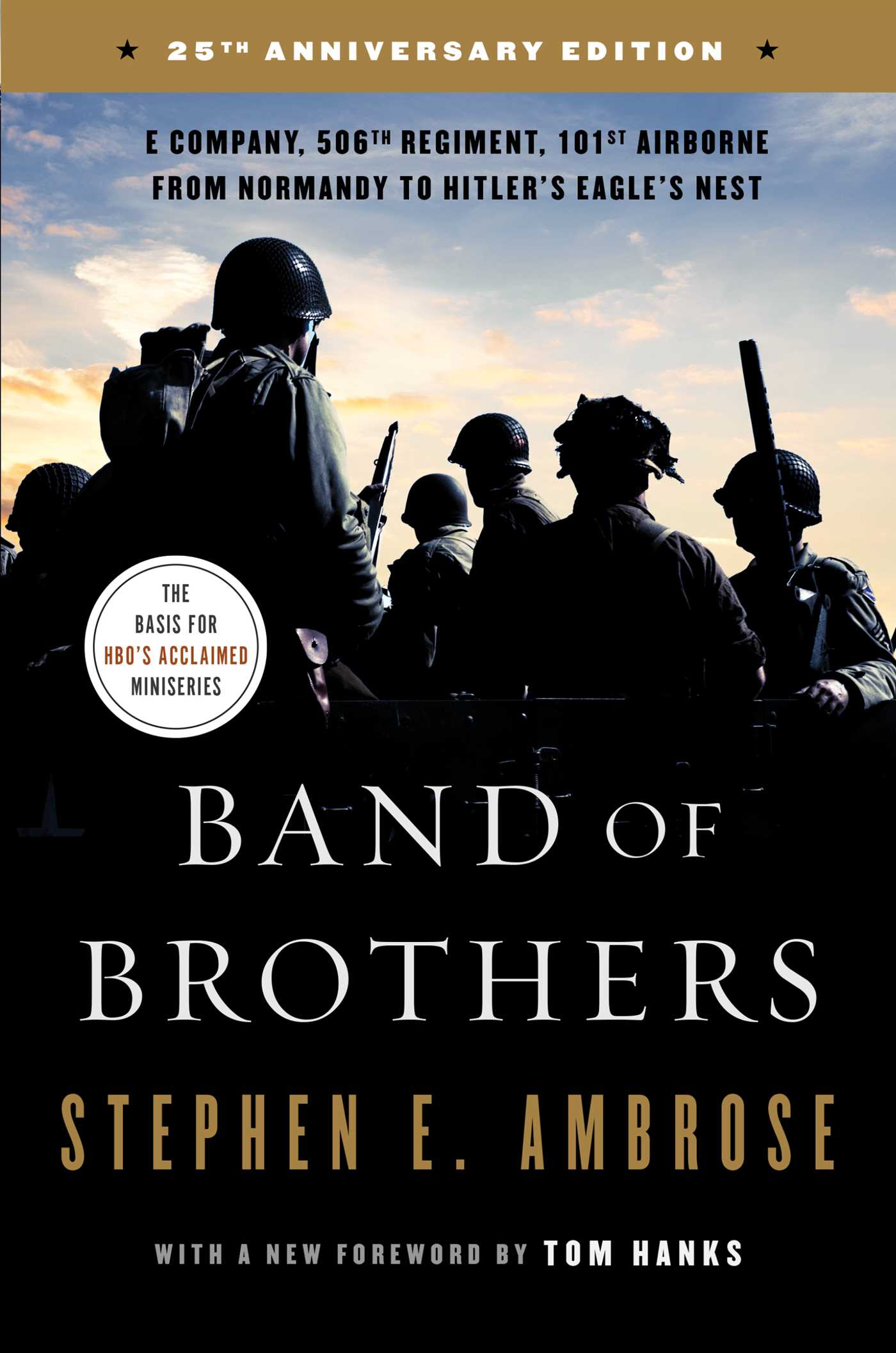“Band of Brothers,” authored by Stephen E. Ambrose, remains an unparalleled narrative that encapsulates the valor, camaraderie, and harrowing experiences of soldiers during World War II. The book initiates an exploration into the minds and spirits of the men of Easy Company, 506th Parachute Infantry Regiment, 101st Airborne Division. What is it about this particular tale that resonates so profoundly with audiences across generations? The answer lies not just in the dramatic portrayals of warfare, but in the deeper human truths embedded within the narrative.
One of the most striking features of “Band of Brothers” is its ability to highlight the ordinary amidst extraordinary circumstances. Ambrose meticulously chronicles the journey of Easy Company, from their grueling training at Camp Toccoa, where they were sculpted into elite paratroopers, to their pivotal role in some of the most fierce battles in European theaters. This process is not just physical; it is also psychological, illustrating the evolution of young men thrust into the maelstrom of conflict. The juxtaposition of mundane training routines with the surreal reality of war creates a compelling narrative arc that reveals the intense bonding formed among the soldiers.
The allure of “Band of Brothers” extends beyond the epic battles and tactical maneuvers. It ventures into the profound depths of brotherhood, painting a vivid picture of the emotional landscapes navigated by the soldiers. In the face of unspeakable horror, these men forged connections that transcended mere friendship. In the trenches, their shared vulnerabilities and fears constituted an unbreakable bond, serving as a poignant reminder of the human spirit’s resilience. This exploration of camaraderie encourages readers to reflect upon their own relationships, prompting a recognition of the indispensable value of solidarity in the face of adversity.
Furthermore, Ambrose’s narrative resonates due to its astute portrayal of leadership and sacrifice. Figures such as Richard Winters emerge not merely as soldiers but as embodiments of integrity and valor, whose actions encapsulate the essence of true leadership. Winters leads not through tyrannical authority but by exemplifying courage and decisiveness under pressure. Readers are privy to moments that reveal the moral dilemmas faced by leaders amidst chaos—the thin line between survival and moral rectitude. This complexity invites a deeper contemplation of what it means to lead and the burdens that accompany such responsibilities.
“Band of Brothers” also adeptly underscores the trauma of war—its psychological repercussions that linger long after the gunfire has ceased. Ambrose does not shy away from depicting the raw emotional scars that soldiers carry, articulating the haunting effects of experiences that defy verbal expression. The depiction of post-traumatic stress disorder (PTSD) serves as an unsettling reminder of the long shadows cast by combat, ultimately fostering empathy and understanding. Such portrayals challenge readers to confront the often-ignored realities of returning veterans, fostering a sense of collective responsibility towards their healing.
The narrative’s intricate detailing of historical events, such as the D-Day landings and the Battle of the Bulge, serves both an educational and emotional purpose. The reader is not merely a passive observer; they are drawn into the tumultuous fabric of history where lives hang in the balance. Ambrose’s vivid descriptions of the operations blended with personal anecdotes create a tapestry rich in emotional resonance. This conflation of history and individual story influences our perceptions of heroism and legacy, prompting an examination of how we celebrate and remember those who serve.
Ambrose’s historical integrity strengthens the book’s authenticity. Each anecdote, each battle account, is meticulously researched, allowing readers to discern the granular realities of warfare. The author amplifies the voices of the soldiers by integrating their accounts, rendering their experiences even more compelling. Their honesty illuminates not just the valor, but the intense fear, the moments of doubt, and the human instincts for survival, making the book palpably authentic and deeply engaging.
The fascination with “Band of Brothers” can also be attributed to its resonance with contemporary themes—brotherhood, sacrifice, legacy—that hold significance in today’s tumultuous world. As we navigate an era punctuated by divisiveness and uncertainty, the narrative serves as a resounding call to action about the importance of unity and understanding in our communities. It encourages a reflection on the ethical dimensions of our choices and the responsibilities we owe to one another.
In essence, “Band of Brothers” transcends mere recounting of historical events; it delves into the psychology of its characters, exploring themes of sacrifice, integrity, and the undying spirit of brotherhood. The allure of the book lies not only in the audacity of its subjects but also in its ability to reflect universal truths about the human condition. It invites readers to ponder the intricacies of courage, both in battle and in life, and ultimately inspires a sense of reverence for those who have faced the crucible of war. Through its pages, we find not just stories of men, but reflections on ourselves. Whether through recognizing the sacrifices of the past or contemplating our roles in the present, “Band of Brothers” persists as an enduring testament to the indomitable human spirit.
